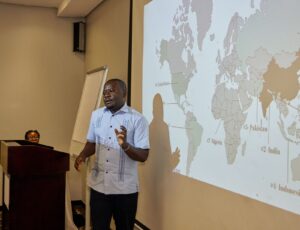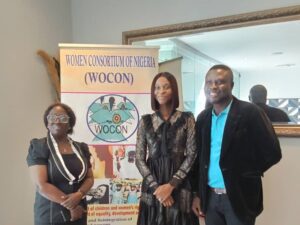Concerns are mounting over the alarming rise in online child abuse across Africa, posing significant threats to future generations and the continent as a whole.
This pressing issue was highlighted during the two day National Consultation of Sexual Exploitation of Children in Nigeria, organised by the Women’s Consortium of Nigeria (WOCON) in partnership with ECPAT International.
The concerns raised follow a recent study by the University of Edinburgh’s Childlight Global Child Safety Institute, revealing that over 300 million children worldwide face online sexual exploitation and abuse each year. Researchers found that in the past year alone, nearly 13 percent of the world’s children have been victims of non-consensual sharing and exposure to sexual images and videos.
Read also: Meta introduces new features to enable teens avoid sextortion scams
ECPAT Highlights Shocking Statistics
Willy Buloso, the Regional Coordinator for Africa at ECPAT International, raised that the statistic is high due to the minors’ young ages, submissiveness, and fear of speaking out, hence the rapid spread of child abuse in Africa.

He stressed that many people are unaware of the severe dangers posed to society and the victims themselves.
Buloso also highlighted the urgent need for comprehensive cooperation among all stakeholders to combat these crimes. This includes civil society groups, government agencies at all levels, telecom companies, social media platforms, parents, children, social workers, and caregivers.
Such collaboration is crucial to ensuring a quick response to this growing threat. Additionally, Buloso called for more research to develop long-lasting solutions to online sexual exploitation of children.

On her part, the Director of WOCON, Morenike Omaiboje, highlighted how cultural and religious beliefs affect children in the country and expressed concern over the rising rate of child sexual exploitation. She noted that family and friends often interfere, significantly contributing to the exploitation.
Focus on Justice and Compensation for Survivors
Representing the Attorney General of Lagos State, Moyosore Jubril Onigbanjo, the Executive Secretary of the Lagos State Domestic and Sexual Violence Agency (DSVA), Titilola Vivour-Adeniyi, stressed the importance of not only seeking justice but also ensuring compensation for survivors of sexual abuse. She argued that while jailing offenders is essential, focusing on helping the victims recover is equally important.
Read also: Behind the Decision: X’s Shift on NSFW Content
Brainstorming Lasting Solutions on Sexual Exploitation of Children
In efforts to find lasting solutions, the consultation saw representatives from civil society, government agencies, and community and religious leaders brainstorming on various strategies.
Grassroots involvement was emphasised to educate local communities about the sexual exploitation of children. Using both mainstream and digital platforms, public-private partnerships and media engagement were also highlighted as crucial for raising awareness and leveraging resources to combat the issue effectively.
The event was attended by representatives from the Lagos State Domestic and Sexual Violence Agency (DSVA), the National Agency for the Prohibition of Trafficking in Persons (NAPTIP), and various community and religious leaders across Nigeria. Together, they emphasised the need for a united front in addressing and eradicating online child abuse to protect Africa’s children and secure the continent’s future.















